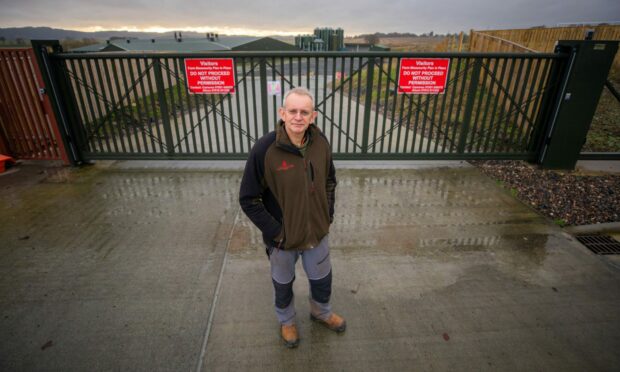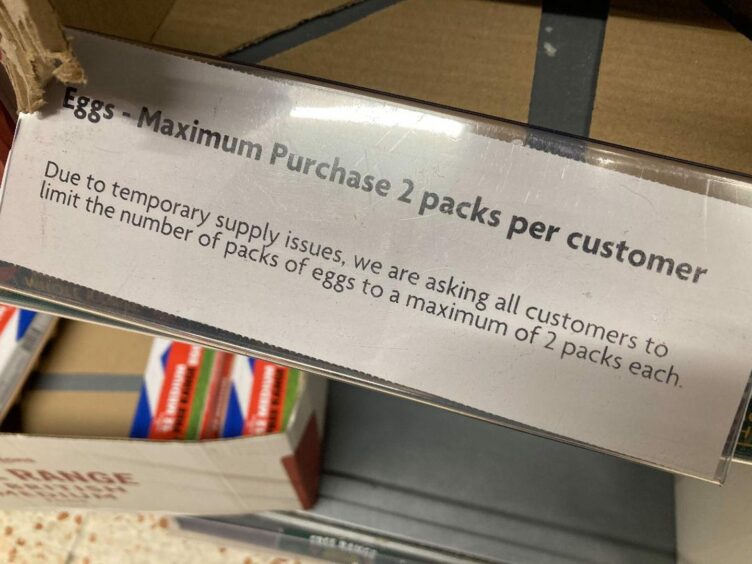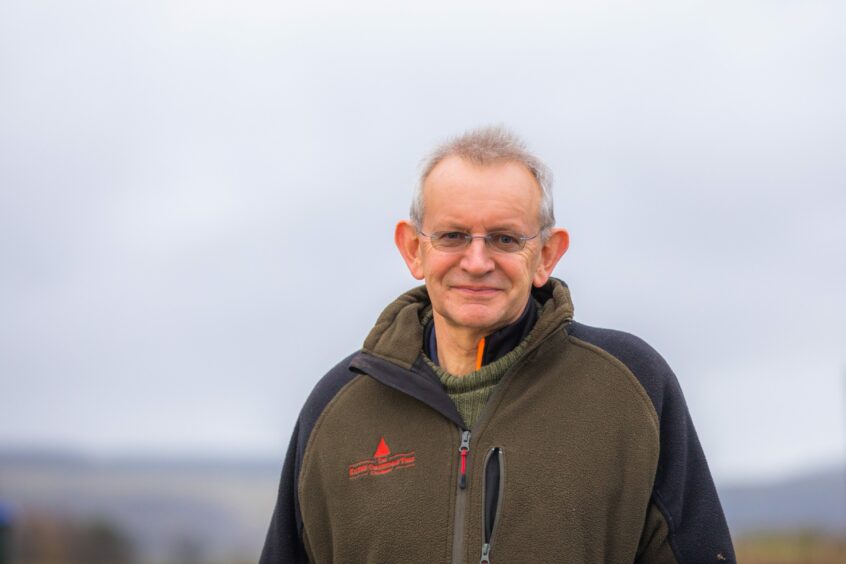A Kinross egg producer fears bird flu could lead to the slaughter of his 39,500 hens.
Jimmy Smith, who runs Kilted Eggs near Balado, explains.
“If one bird catches the flu, the 39,500 are destroyed.
“It’s a big concern.”
However, he says bird flu is not the main reason shops are having to ration the sale of eggs.
Bird flu hits poultry farmers
The circulating highly infectious strain of avian influenza H1N1 has hit poultry farms in Aberdeenshire, Orkney and the west of Scotland.
Jimmy, who launched his free range hen business just two years ago, says he has done everything he can to protect his flock.
“We’re in the fortunate position that we built a new facility through Covid.
“We made it to the highest standard of biosecurity that’s possible.”
But free range chickens have to be outside.
And every autumn, just east of his premises, around 20,000 migratory geese arrive at Loch Leven.
“The difficulty with avian influenza is that it’s carried by wild, migratory, birds.
“We can do everything possible to prevent avian influenza within our facility.
“But we are required by law to let them range freely.
“In the Loch Leven area, we’ve got a greater risk than some folk because we’ve got thousands of geese that hang around Loch Leven.”
The reality for egg producers
Losing a flock to avian flu must be “heartbreaking” says Jimmy.
“It’s heartbreaking to lose any stock through illness or disease and hens are the same.”
Meanwhile, he says he “cannot get insurance” to cover the potential loss of his birds.
Having added free range hens to his existing business of arable farming and Christmas trees, Jimmy has found the egg industry an eye-opener.
Recently, there have been fewer boxes of eggs on supermarket shelves.
Some supermarket chains have taken the decision to limit the number of eggs sold to each customer.
And Jimmy says the problem is not avian flu.
“It’s not avian flu that’s the biggest issue in the egg industry.
“It’s not getting paid the right price by the supermarkets.”
Rising costs
Costs associated with heating accommodation and providing chicken feed have put egg producers under pressure.
Earlier this year, one of Scotland’s largest producers based in Ayrshire ceased trading after more than a century in business. A company spokesperson said rising costs had been a major factor.
“Avian flu is bad enough, but it’s the economics of the egg industry that’s actually the biggest problem,” says Jimmy.
“That’s the biggest impact on egg supplies to the supermarket.
“The producers are going out of business.”
NFU Scotland’s poultry working group chair Robert Thompson recently called for retailers to “deliver a fair price back to egg producers”.
Jimmy added: “Householders aren’t getting squeezed on eggs.
“Eggs are cheaper now than they were five years ago.
“And the industry has moved dramatically from caged birds to free range birds, which obviously have greater costs involved.”













Conversation